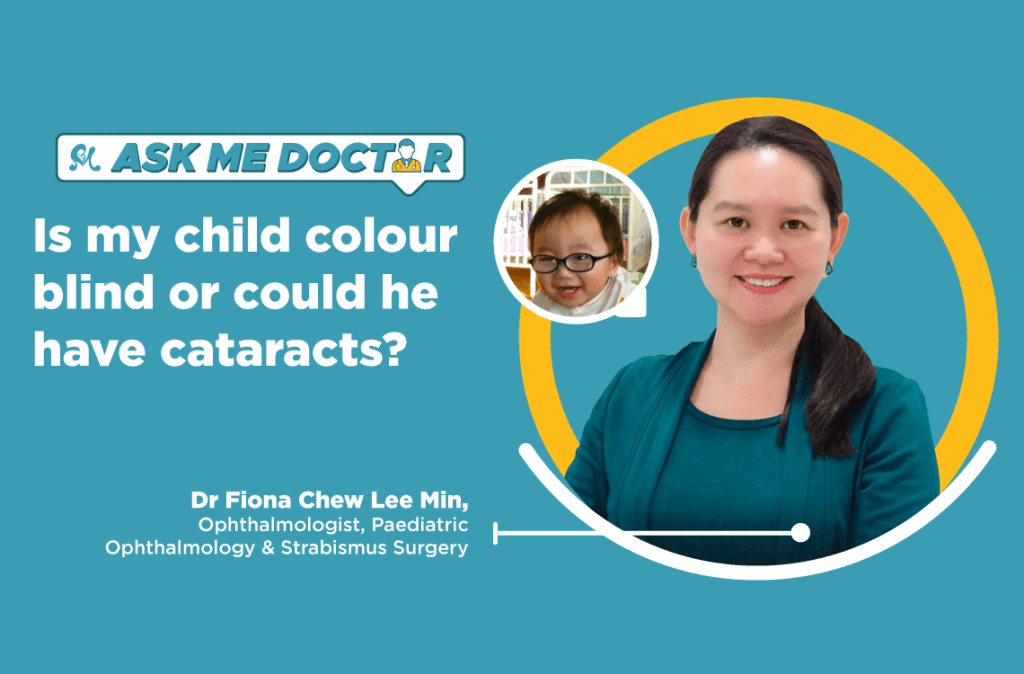Colour blindness is usually hereditary which means it is passed from the parents to the child. Eyes and visions are one of the most critical parts of a child’s development.
By having regular visits to your eye care provider, you get to know about your children’s eye health. Today we are very fortunate to have Dr. Fiona Chew with us, to understand more about your children’s eye health.
I heard that children can also get cataracts, but, is that true, doctor?
Dr. Fiona: Cataract unfortunately is possible in children. It is rare, however, even from birth, children can have cataracts.
Why can they have cataracts?
Can be due to either one, hereditary.
Number two, they can have some kinds of infections while in mummy’s tummy at that time.
Or it could be due to even trauma later on or injury.
But, most important about paediatric cataract, if it is detected early and treated early, the visual outcome is quite good.
The problem is when we see cataract after about like three years of age, just say they had it from birth, but they only came later on.
What happens is the eyes start losing focus and even after you have done the surgery, it does not regain 100% of the vision and the eyes start moving here and there, in a condition called nystagmus or jiggly eyes.
So, it is best to fix it as early as possible even as a baby, to make sure the baby has the best vision possible.
Do I have to bring my baby to an ophthalmologist to check?
Dr. Fiona: Basically, we do recommend regular eye examinations. Usually at birth, the kiddy eye doctor, the paediatrician will torch the light to make sure okay, the eyes look straight, there are no abnormal white reflects in the eye.
Then, later on, if the child has no problems, if it is fixating that he is looking at things properly, you can probably bring the child about three years of age for the first eye checkup.
Is colour blindness familiar among children?
Dr. Fiona: Colour blindness is usually hereditary which means it is passed from the parents to the child.
However, there are certain conditions where the child who was normal suddenly became colour blind.
Why?
Maybe because they had injury or inflammation or infection to the nerve of the eyeball, or even to the brain.
Well, detection of colour blindness will depend on the child’s ability to answer questions.
If the child is able to identify alphabets or even maybe follow the lines with their finger, we will be able to do simple tests to check all colour blindness.
Well, I believe by leading by example, if we lead a healthy lifestyle, our children will follow and also adopt a healthy lifestyle.
And most importantly for children at this point in time is digital eye syndrome where some children develop refractive error, they develop squint, they develop all kinds of any eye conditions, just because you are exposing them to too many digital devices such as handphones as well as computers.
So, it would be good either to stop or limit the exposure to these devices.
Disclaimer: The information provided in this article is for informational purposes only and should not be considered as medical advice from Motherhood. For any health-related concerns, it is advisable to consult with a qualified healthcare professional or medical practitioner.
For more insightful stories and fun recipes, stay tuned to Motherhood Story!
